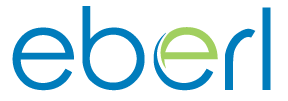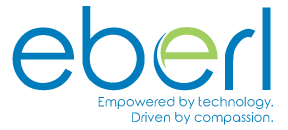Ethics are the moral principles that govern human behavior and they are an important part of each person’s life – especially for individuals building careers within the insurance industry.
Understanding the ethical obligations of the claims handling process is critical to being a well-rounded and successful adjuster in the field.
Eberl is committed to ensuring our adjusters are exhibiting ethical practices in all aspects of their work so we’re here to provide some guidance regarding what to do and what NOT to do while on the job in order to meet these expectations.
Consider Your Actions
Even if you may feel confident in your ability to deliver ethical service to the policyholders you assist as well as the carriers you represent day-to-day, it’s a good idea to refresh your knowledge regarding this imperative topic!
To begin, consider whether these scenarios have happened to you and if so, how often they occur:
- You’ve hurried through the investigation of a claim in the interest of saving time
- Entered a situation with a pre-conceived notion that something would be covered by insurance (or not) before beginning your investigation
- Allowed your file documentation to be incomplete or disorganized
- Taken poor photographs of a property or vehicle
- Unsuccessfully updated your activity log in a timely manner
- Committed a mistruth where you documented that you left a message for a policyholder when you really didn’t
- Failed to continue your training and education regarding advancements or developments within the industry to the point where your expertise has become outdated
If you answered “yes” to any of these occurrences, it means you have (willingly or unwillingly) engaged in an ethical violation. However, don’t fret because you can take mindful steps to correct these behaviors!
Take the L.E.A.D.
The livelihoods of families and communities all across the nation depend on the adjusters who are there to respond in times of need. We encourage our adjusters to take the L.E.A.D. in ensuring the highest quality of ethical practices! These letters stand for:
- Listen – Address the concerns policyholders may have and use active listening skills to truly pay attention to what they have to say.
- Engage – Ask investigative questions! Doing so will aide in uncovering additional information that may be relevant to the claim.
- Assist – Be present, empathetic, and professional when interacting with policyholders. Don’t allow yourself to become de-sensitized to the policyholder’s feelings!
- Develop – Stay current and continue to build your industry skills by participating in learning opportunities. Always check your work and even review the work of others (if it’s a possibility) so that everyone is kept accountable.
As the eyes and ears of both the carrier and the policyholder, you’re expected to uphold the many responsibilities of the job you’ve taken on in good faith. Both parties are relying on you to be their ethical champion so that means you MUST be ready to take on that challenge. If you aren’t, it may have serious consequences for your adjusting career and can seriously impact others.
Avoid These Common Ethical Pitfalls
One potentially tough circumstance many adjusters face day-to-day is when they’ve been assigned to a policyholder that exhibits different cultural, religious, or sexual preferences from themselves, which may make them uncomfortable and could result in a reduced quality of service.
As a professional, you have to be honest with yourself in regards to your ability to serve all people fairly and in a non-biased way. In your role as an adjuster, it is your ethical obligation to find damage and seek coverage whenever possible, while seeing past any personal predispositions. If you recognize an inability to accommodate such diverse demographics, it’s your responsibility to have an open conversation with your manager as to why you cannot complete the task at hand.
Here are some additional ethical pitfalls to be weary of and ones you can use the L.E.A.D method to overcome:
- Making inappropriate references – Keep things professional and all personal thoughts to yourself, especially when it comes to documentation processes.
- Failure to communicate properly – Prompt response is always preferred.
- Not knowing the boundaries of your expertise – You are not expected to know everything so it’s best to admit limitations before a situation goes awry. Ask for help and seek guidance from trusted resources.
- Not conducting a complete investigation – This is a big one! Investigate each claim on its own merit, schedule proper time to thoroughly review all related documents, gather as much information as possible from the insured, and don’t skip over any steps in the process.
- Lack of documentation – Create a full claim file so if it were to end up in litigation, it would provide a clear, factual representation of all details related to that claim.
Ultimately, we want to emphasize the need to remain self-aware and situationally conscious when faced with demanding and/or questionable conditions.
Be A Value-Driven Professional
When faced with multiple routes, don’t default to choosing the easy way out or to taking shortcuts when you know there are more ethical paths available. Utilize your best judgement when it comes to conducting your work in the field and remember to think twice about your actions.
Remember that Eberl adjusters are not simply representatives of one singular company but are part of the Barry-Wehmiller and Cor Partners family of businesses. This coalition stands united in the goal of providing truly human and value-driven leadership within the insurance industry.
“At our ‘Cor,’ we will use our hearts, minds, & values to become the most sought-after partner” – this is Eberl’s vision for the future and it can only be made possible by those who recognize and perpetuate the significance of ethical practices.



